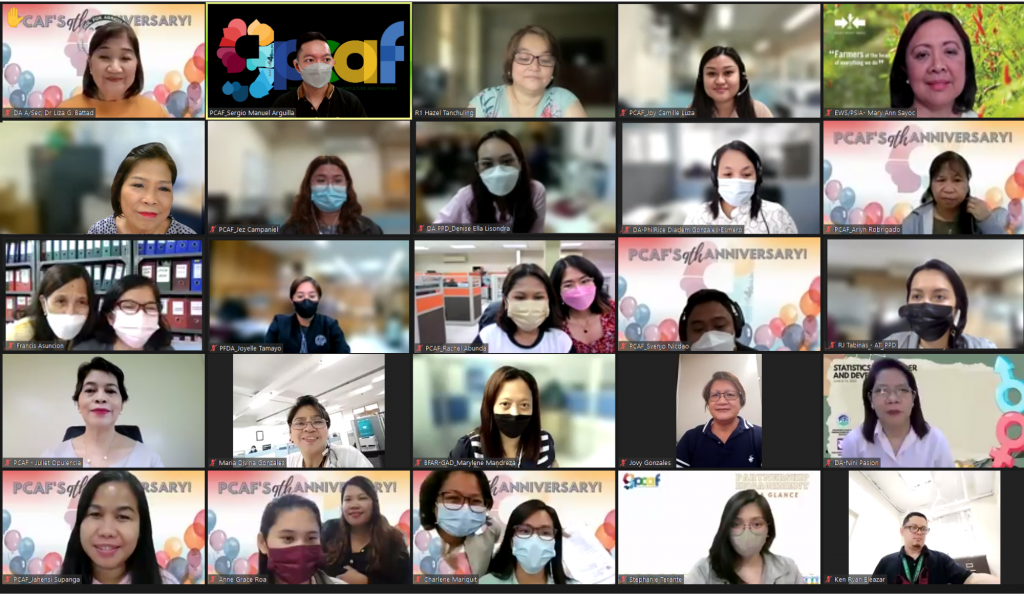
In line with the mainstreaming of Gender and Development (GAD) in the Philippine Council for Agriculture and Fisheries’ (PCAF) programs, activities and projects, the agency conducted a virtual Knowledge Unloading Day (KUD) on the study “Enhancing Gender Outcomes of Different Rice Related Agencies through Gender Analysis of Rice Supply Chain and Advocacies” on June 30, 2022.
The KUD, which is also part of the ninth anniversary of PCAF, highlighted the gender analysis study which looked into the role of women in the rice supply chain and reviewed GAD-related programs and performance as it aims to contribute to enhancing GAD plans, budgeting, and utilization of rice related agencies.
Rice Watch Action Network Executive Director and National Banner Program Committee on Rice Chairperson Hazel Tanchuling presented the results of the study. According to the study, women have been playing greater roles than men in capital sourcing (51.11% more) and seeds sourcing (12.59% more), while being more involved in post-production activities like palay drying (21.48% more), milling (27.4% more), and marketing (42.22% more).
The study also focused on the aspirations of women rice farmers relating to their various spheres, like family, community, organization, and the rice industry itself. In terms of access and control over key farm and family resources, the study revealed that women play a greater role in decision-making over matters like family savings (46.7% more), backyard gardens (56.7% more), and alternative livelihoods (36.7% more).
The study identified urgent gender issues such as the need for more focus on women farmers belonging to indigenous groups, the need to promote comprehensive gender-sensitive policies, services, and programs, and the importance of women’s participation and leadership in policymaking.
The results of the study could help the sector in addressing the distinctive needs of women in agriculture, fostering more participation for women in decision-making bodies, and in overcoming gender-based constraints in the agri-fishery sector.
It was also revealed that women, though they comprise a large percentage of the agricultural labor force while acting as caregivers for their families, have long been disadvantaged in terms of ownership and control of productive asset inputs. This gender gap also extends to access to agricultural training and education.
Dir. Tanchuling also emphasized the importance of studies like the gender analysis of the rice supply chain and advocacies in improving policies and programs in the agriculture sector. According to her, gender analysis tools could help in identifying existing gender inequalities that plague the agriculture sector.
According to a study by the World Bank, closing the gender gap could increase yields on women-run farms by as much as 30%. Closing the gender gap and increasing women’s competitiveness in the agri-fisheries sector could also help the sector in maximizing the potential of agricultural lands.
GAD Focal Persons of the OneDA family, members of the national and regional Agricultural and Fishery Councils, and various PCAF employees attended the KUD. PCAF has been conducting KUDs regularly to institutionalize a learning culture within and among PCAF staff and stakeholders. | SMA











